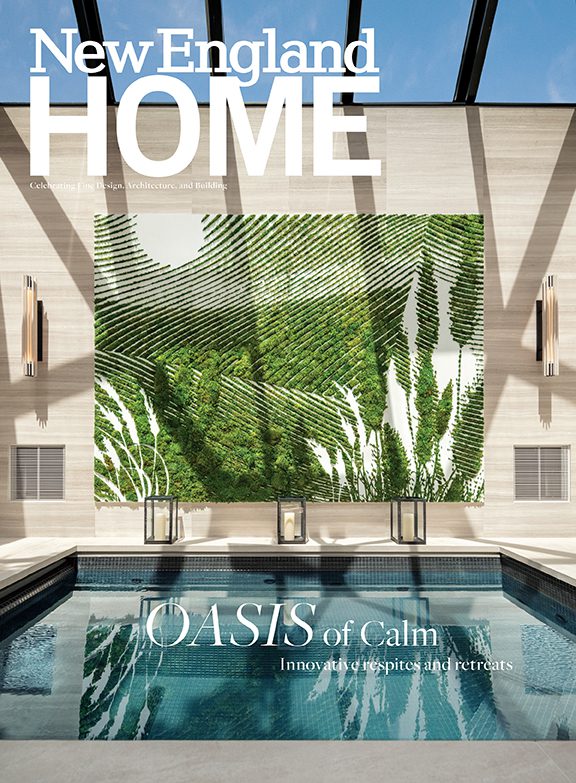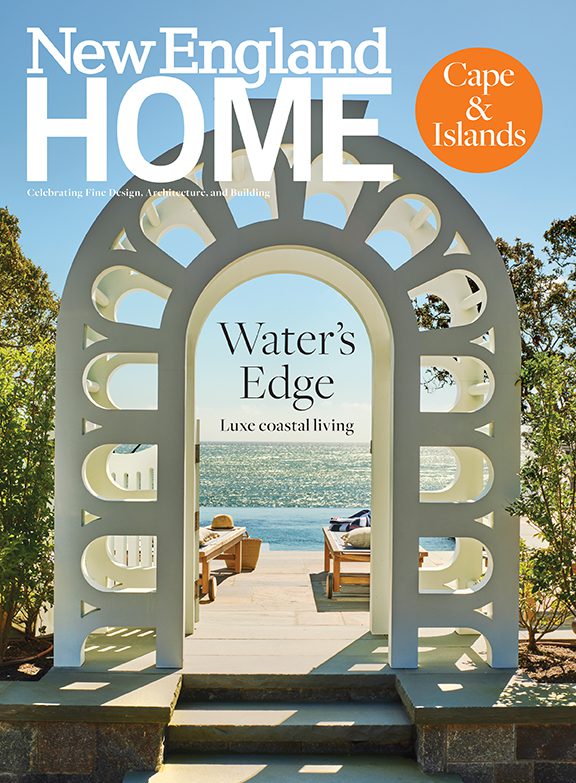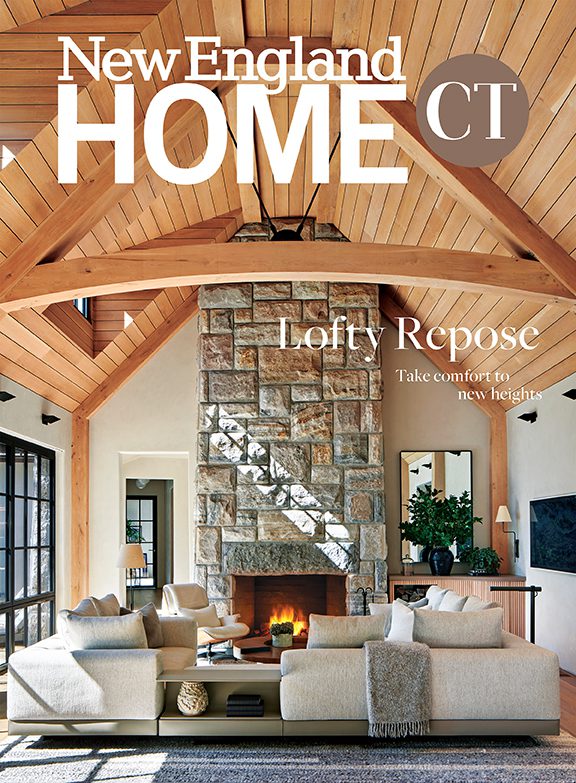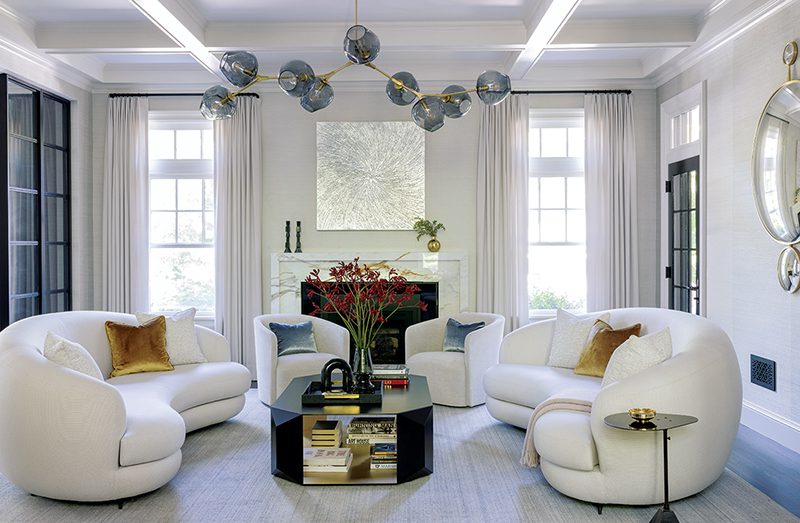Carvers’ Guild
November 30, 2016
When it comes to mirrors, the ones Carvers’ Guild designs and makes in its Massachusetts work space are the fairest of them all.
Text by Regina Cole
To get to Carvers’ Guild you drive off a two-lane road in West Groton, Massachusetts, a narrow byway meanders down to a cluster of nineteenth-century mill buildings that occupy a peninsula jutting out into a wide, lake-like part of the Squannacook River. Inside the venerable industrial spaces, people move around workbenches, wielding the tools and machinery of light manufacturing. Everywhere you look, there are frames. Gilded, silvered, painted, tiled, plain, fancy, and rustic, they represent styles from shiny metal modernism to twiggy naturalism to Art Nouveau to Louis Quatorze. They hang from brackets high on the walls, lean against tables, are stacked a dozen deep along hallways, and fill corners and alcoves. Shapes and sizes range from petite ovals to enormous rectangles.
Since 1970, this has been the home of Carvers’ Guild, the singular company that makes fine decorative mirrors. These frames are empty of glass, awaiting orders that will unite them with their reflective heart. The mirrored glass might be silvered, fly-specked, beveled, or antiqued, depending on design and preference.
Stylish, beautifully made mirrors are the product Carol and Carl Canner developed almost by accident. The couple met and fell in love in 1961, when she was studying painting at the Rhode Island School of Design and he was a geology major at Harvard. She had committed to renting a studio in Provincetown for the summer, painting and selling portraits to passing tourists. He invented a job for himself, renting a decrepit shack in the Truro dunes to build frames for her paintings.
For the next several years they ran the summertime portrait-painting business in Rockport, Massachusetts, and, because Carl had an uncle working for Samsung, connected with a Korean source for carved frames. “We listened to the corners pop—they were not well made,” Carl says.
A surfeit of frames led Carl and Carol to fill them with mirrors, naming their fledgling company Carvers’ Guild. That, in turn, led to the realization that they saw few stylish contemporary mirrors in furniture stores. “Just the usual gilded things,” Carol says. “Anything modern wasn’t framed, and not very interesting. We decided that mirrors would be a nice, complete product.”
They began crafting their own frames, and soon had a brisk business selling their mirrors to shops like Design Research in Cambridge, Massachusetts. An artist friend was working with Plexiglas, so Carol began to design Plexiglas mirror frames. They took off like rockets. “We started the contemporary mirror business,” says Carl.
When lightning struck their Boston workshop in 1970, they moved the business to its current spot in West Groton. As they looked for alternatives to overseas sources for their frames, they hit on the idea of casting them in resin. Almost the same weight as pine, resin is far more adaptable to design variation and can be finished to look like anything. The resin is poured into a flexible rubber mold, a simple, non-toxic process. “Carol makes the prototype out of clay,” Carl explains. “A mold maker makes the mold from that.”
Carol has consistently stayed ahead of trends. When modernism faded and a 1980s neoclassicism took hold, she designed a black-and-white tile checkerboard frame that was a big success. These days, her sculptural modern designs are best sellers.
Today, two women sit at a wide table and sand the rough edges from a new batch of frames; tomorrow, they will apply gold leaf to them. Nearby, a worker builds a wood backing to reinforce the vast proportions of a seven-foot-by-ten-foot gilded frame. In a different area, a young man sprays foam around a carefully wrapped framed mirror, then holds down the lid as the foam expands to form a rigid enclosure around the fragile piece. With about fifteen employees, the Canners have brought every phase of production into their antique mill building, from design to shipping. Most of their customers are designers, hotels, and furniture stores.
After more than four decades in the business, the couple doesn’t see any signs that demand for their products is flagging. After all, Carol points out, “Mirrors are one of the biggest things in design. You can use one in every room.” •
Carvers’ Guild
West Groton, Massachusetts
(978) 448-3063
carversguild.com
Share
![NEH-Logo_Black[1] NEH-Logo_Black[1]](https://www.nehomemag.com/wp-content/uploads/2022/08/NEH-Logo_Black1-300x162.jpg)













You must be logged in to post a comment.